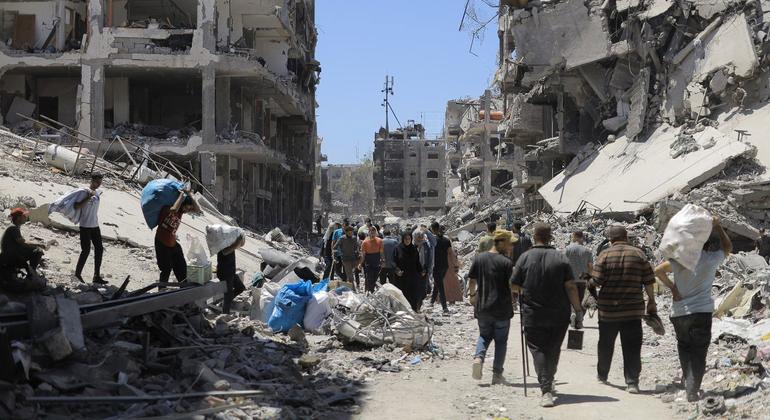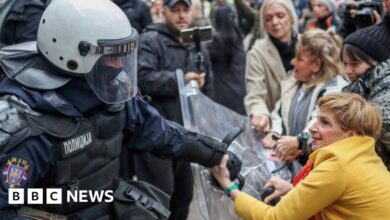Gaza: Aid restrictions and health problems persist amid ongoing conflict

On Thursday, United Nations Spokesperson Stéphane Dujarric, provided details from the aid coordination office. OCHA on how providing aid has become difficult for agencies in the region due to limited access, food security and worsening health issues.
“Our partners report that limited access in the north is preventing the establishment of a new nutrition services center in the North,” he told reporters at United Nations Headquarters in New York. that area”.
OCHA is also struggling to find enough space to set up nutrition sites at Deir al Balah and Khan Younis. However, he said, U.N. partners are stepping up their efforts in those areas as well as in Al Mawasi and Gaza City.
Fighting disrupts food supplies
World food program (World food program) is also having difficulty delivering aid due to increased fighting in southern and central Gaza as well as limited humanitarian aid and lack of safety and public order in the south.
Despite this, WFP was still able to provide food to more than 766,000 civilians in Gaza in June, but supplies were cut due to limited aid and depleted food reserves.
This month, Mr. Dujarric said, WFP was also able to provide 9.4 million hot meals through a network of more than 90 community kitchens to about 300,000 people, mainly in Deir al Balah and Khan Younis.
He noted that WFP has reported that “a shortage of cooking gas – combined with the absence of public electricity – is hampering efforts to keep these community kitchens and bakeries running.”
UNRWA Update
United Nations Agency for Palestine Refugees (UNRWA) stressed that people in Gaza are now regularly living amid piles of garbage and sewage.
Reports also detail deteriorating health conditions due to overcrowded shelters and food shortages as water and fuel supplies remain limited, along with access to medical supplies. The intense summer heat is another major health threat.
UNRWA is continuing to collect and transport solid waste to temporary sites this month, although fuel shortages are slowing the pace, Mr. Dujarric said.
He noted that the fuel shortage could also make it more difficult to maintain the power lines supplying the South Gaza Seawater Desalination Plant.
As UNRWA works to provide shelter to displaced people in Gaza, he said, “The constant displacement is wearing down temporary shelters, which must be dismantled and reassembled.“ .

Two young girls in Gaza.




